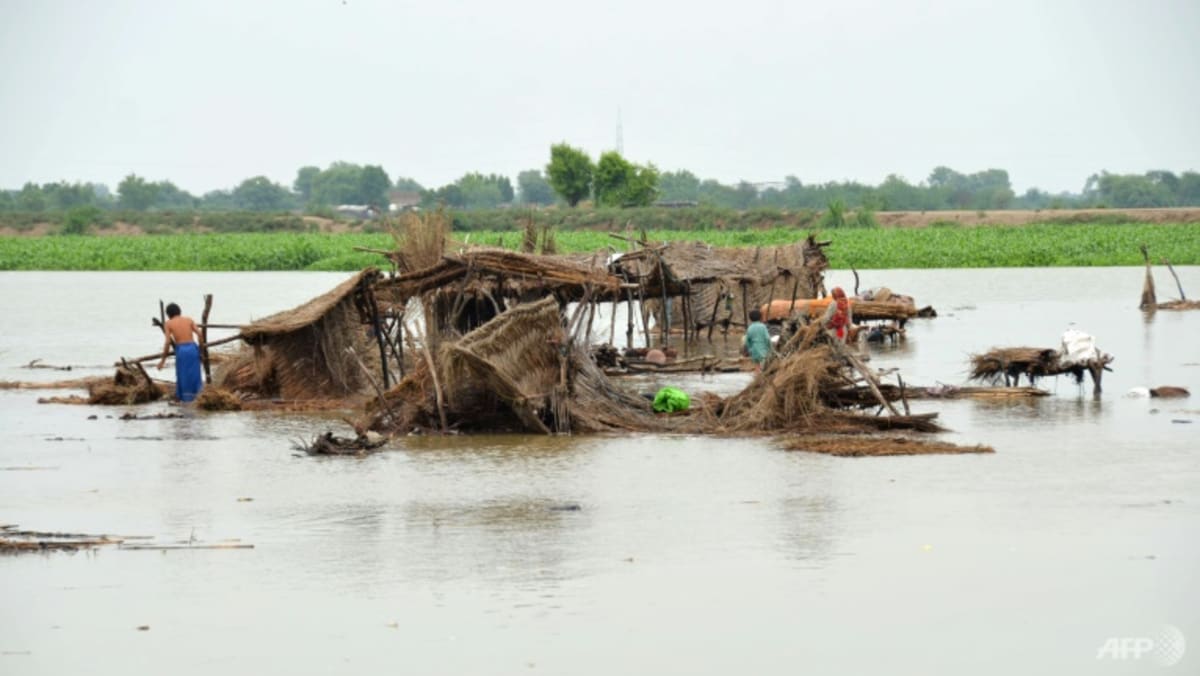
FROM HEATWAVE TO FLOOD
Earlier this year much of the nation was in the grip of a heatwave, with temperatures hitting 51 degrees Celsius in Jacobabad, Sindh province.
The city is now grappling with floods that have inundated homes and swept away roads and bridges.
In Sukkur, about 75km away, volunteers were using boats along the flooded streets of the city to distribute food and fresh water to people trapped in their homes.
Zaheer Ahmad Babar, a senior meteorologist office official, told AFP that this year’s rains were the heaviest since 2010, when over 2,000 people died and more than 2 million were displaced by monsoon floods that covered nearly a fifth of the country.
Rainfall in Balochistan province was 430 per cent higher than normal, he said, while Sindh was nearing 500 per cent.
The town of Padidan in Sindh had received over a metre of rain since Aug 1, he added.
“It is a climate catastrophe of epic scale,” Rehman said, adding 3 million people had been affected.
The National Disaster Management Authority said in a statement that nearly 125,000 homes had been destroyed and 288,000 more were damaged by the floods.
Some 700,000 livestock in Sindh and Balochistan had been killed, and nearly 2 million acres (about 809,000 hectares) of farmland destroyed, officials added.
Nearly 3,000km of roads had also been damaged.

